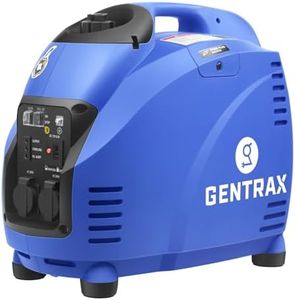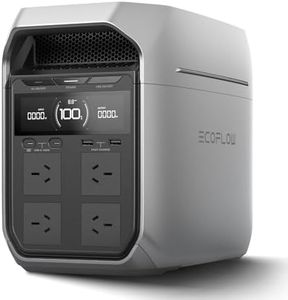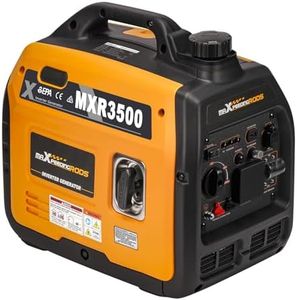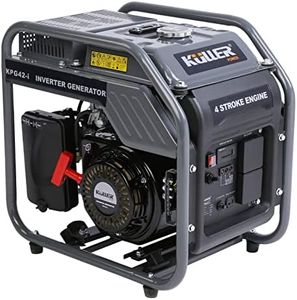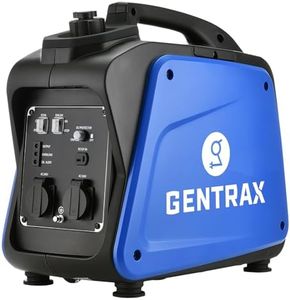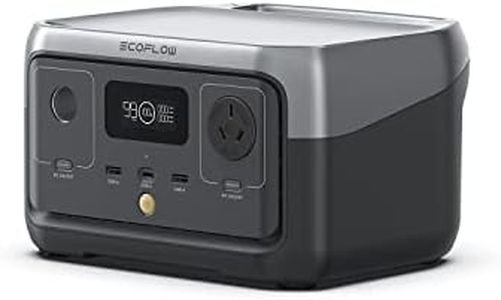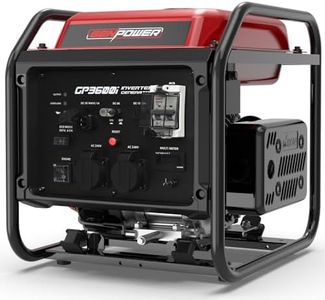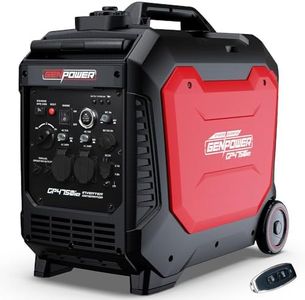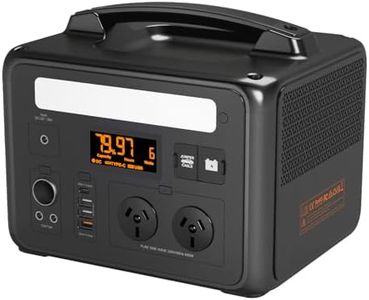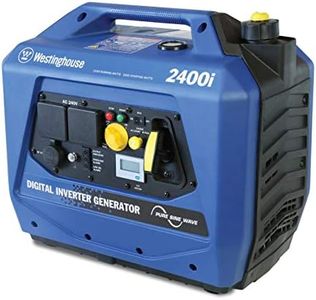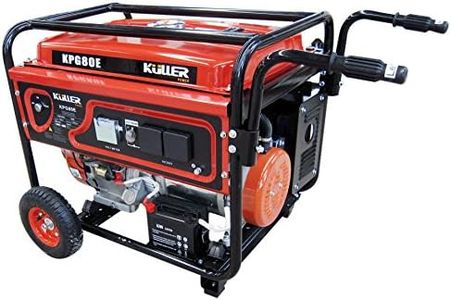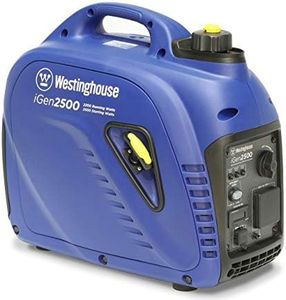We Use CookiesWe use cookies to enhance the security, performance,
functionality and for analytical and promotional activities. By continuing to browse this site you
are agreeing to our privacy policy
10 Best Generator For Camping
From leading brands and best sellers available on the web.By clicking on a link to a third party's website, log data is shared with that third party.
Buying Guide for the Best Generator For Camping
Choosing the right generator for camping involves balancing portability, power, noise level, and fuel efficiency to suit your outdoor adventures. The best generator for you is one that provides enough electricity for your essentials without being cumbersome or disruptive. Think about what you want to power (like lights, a fridge, or charging devices), how much you can carry, and how you plan to use the generator at campsites.Power Output (Wattage)Power output determines how many and what kind of devices you can run at once on your camping trip. This is usually measured in watts. Small generators produce around 500 to 1,000 watts, which is enough for charging phones, running small lights, or a laptop. Mid-range ones range from about 1,000 to 2,000 watts and can support things like mini-fridges, fans, or a few more appliances. Higher wattage over 2,000 is best for heavier loads, such as running an electric cooker or multiple devices at once. To pick the right one, make a list of all the items you want to power, sum their wattage, and choose a generator that has a slightly higher output than your total need.
Portability (Weight and Size)Portability is crucial because you’ll need to carry or move the generator to and around your campsite. Lightweight and compact generators (typically under 50 pounds) are easier for a single person to carry and ideal for shorter trips or solo campers. Medium-sized generators might weigh up to 80 pounds and could require two people or wheels for transportation; these suit longer group camping or when more power is needed. Large, heavy generators are usually overkill for camping and are rarely chosen unless you have special needs and help moving them. Always consider how far you’ll need to carry the unit and how much space you have in your vehicle.
Noise LevelNoise matters a lot when camping since a loud generator can ruin the peace and may bother you or other campers. Noise is measured in decibels (dB). Quiet models often operate below 60 dB, similar to normal conversation, making them pleasant and campground-friendly. Mid-range noise (60-70 dB) is noticeable but tolerable for most, while louder generators (over 70 dB) can be disruptive. If you camp in crowded areas or seek tranquility, look for the quietest model you can find. Manufacturers often advertise lower noise levels for models designed with camping in mind.
Fuel Type and EfficiencyThe fuel type (gasoline, propane, or dual fuel) and efficiency dictate how easy and cost-effective your generator will be to run. Gasoline is commonly available and provides reliable power, but propane burns cleaner and may last longer. Dual fuel options let you switch between fuels based on what you have available. Efficiency is about how many hours the generator runs per tank/gallon. Longer run times on the same fuel mean fewer refills and less interruption. Think about how long you need continuous power and what fuels are easy for you to carry and refill during your trip.
Outlets and Charging OptionsThis refers to what kinds of plugs the generator has for your devices. Most camping generators offer standard household outlets, some feature USB ports for directly charging mobile devices, and 12V car-style ports for certain appliances. Consider the types of devices you plan to run—if you have many gadgets, choose a generator with multiple or varied outlet types. Make sure it can support them all at once to avoid inconvenience.
